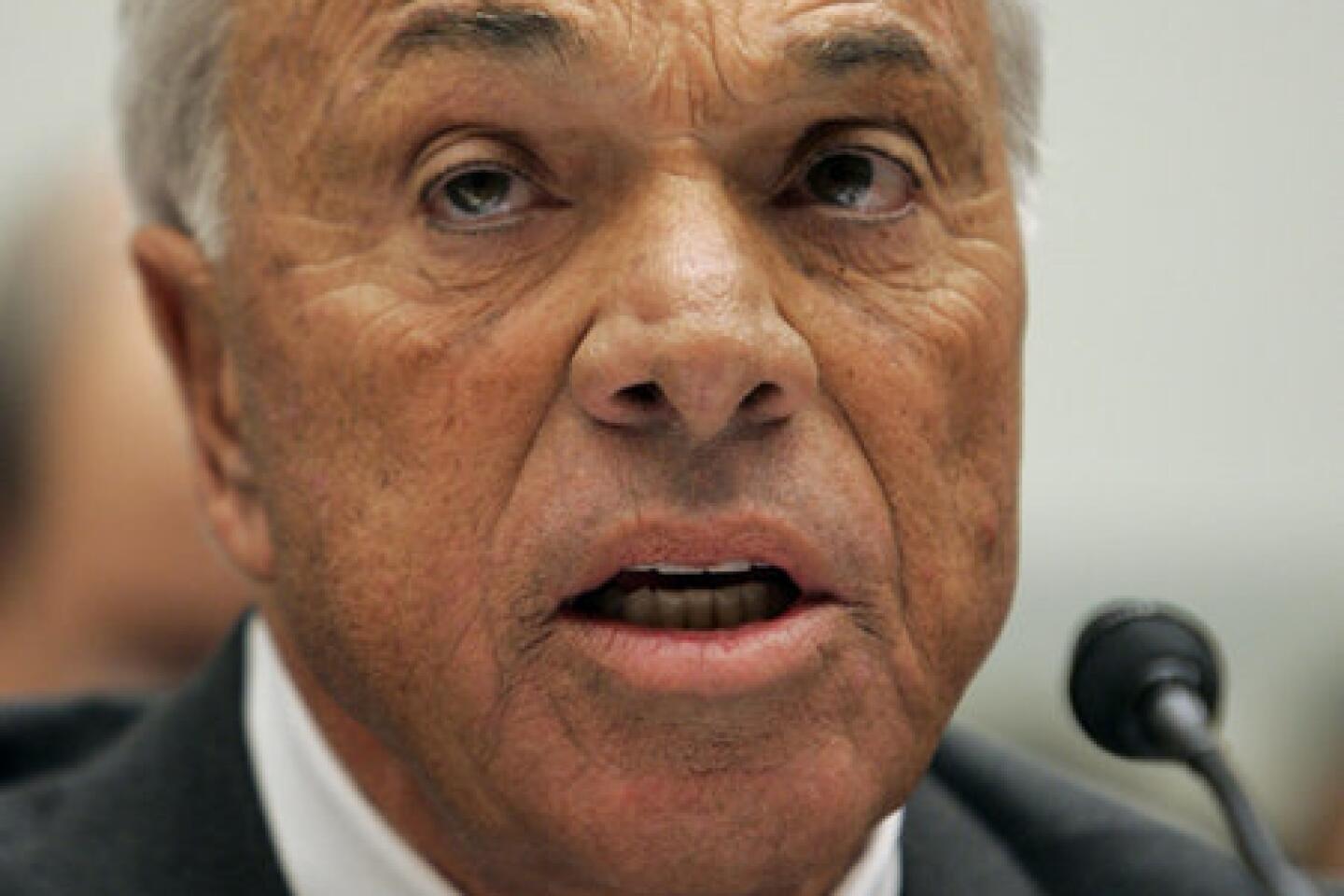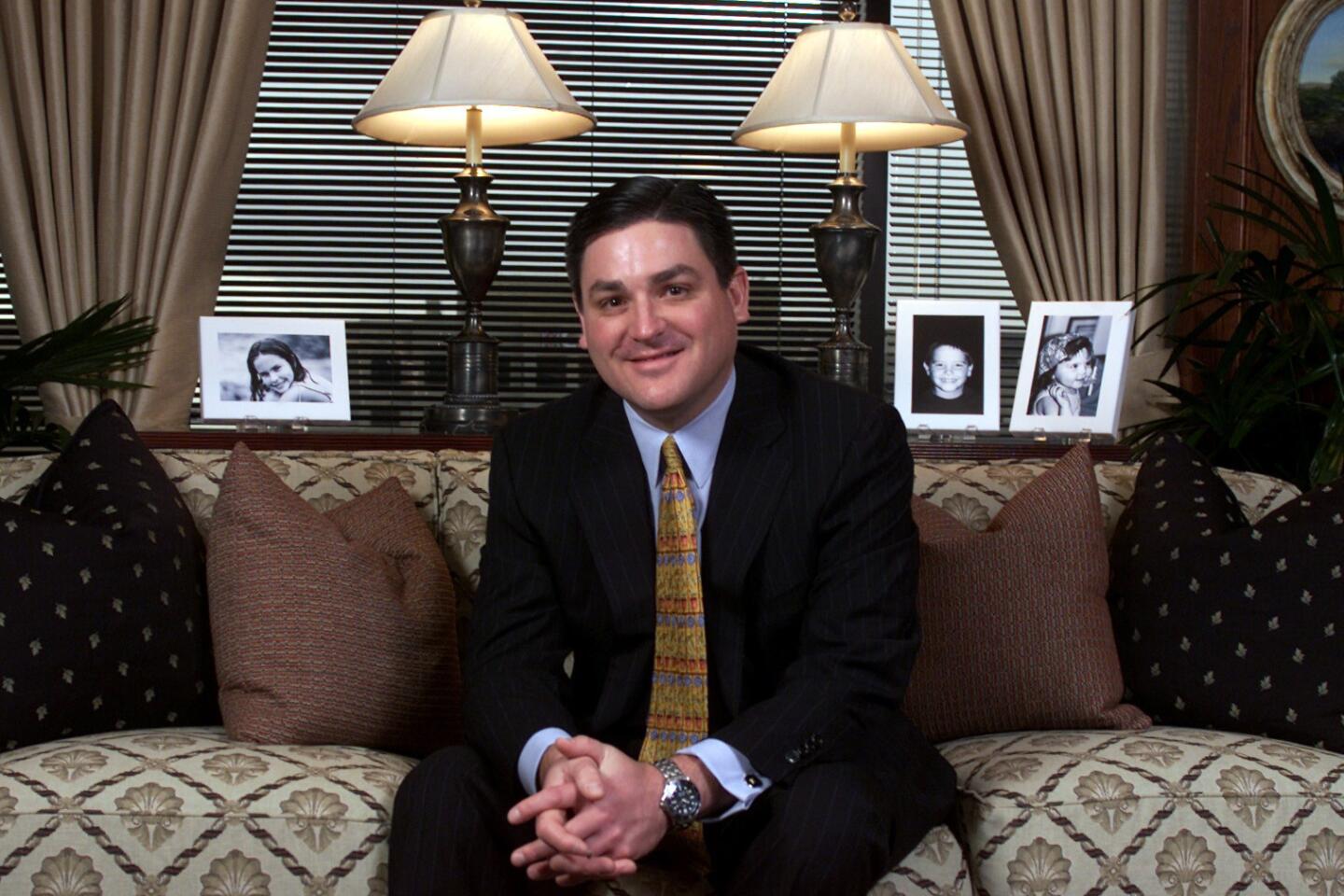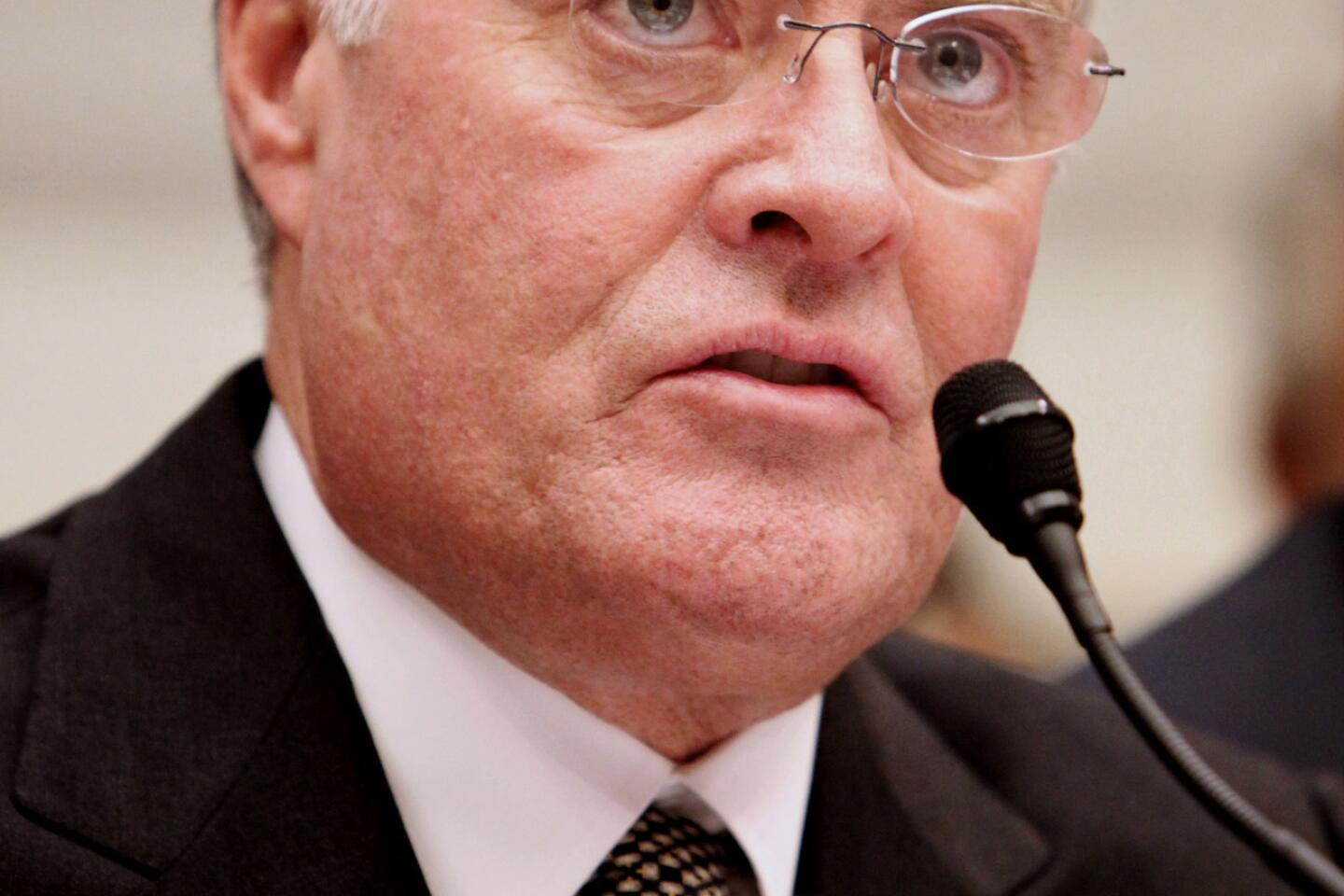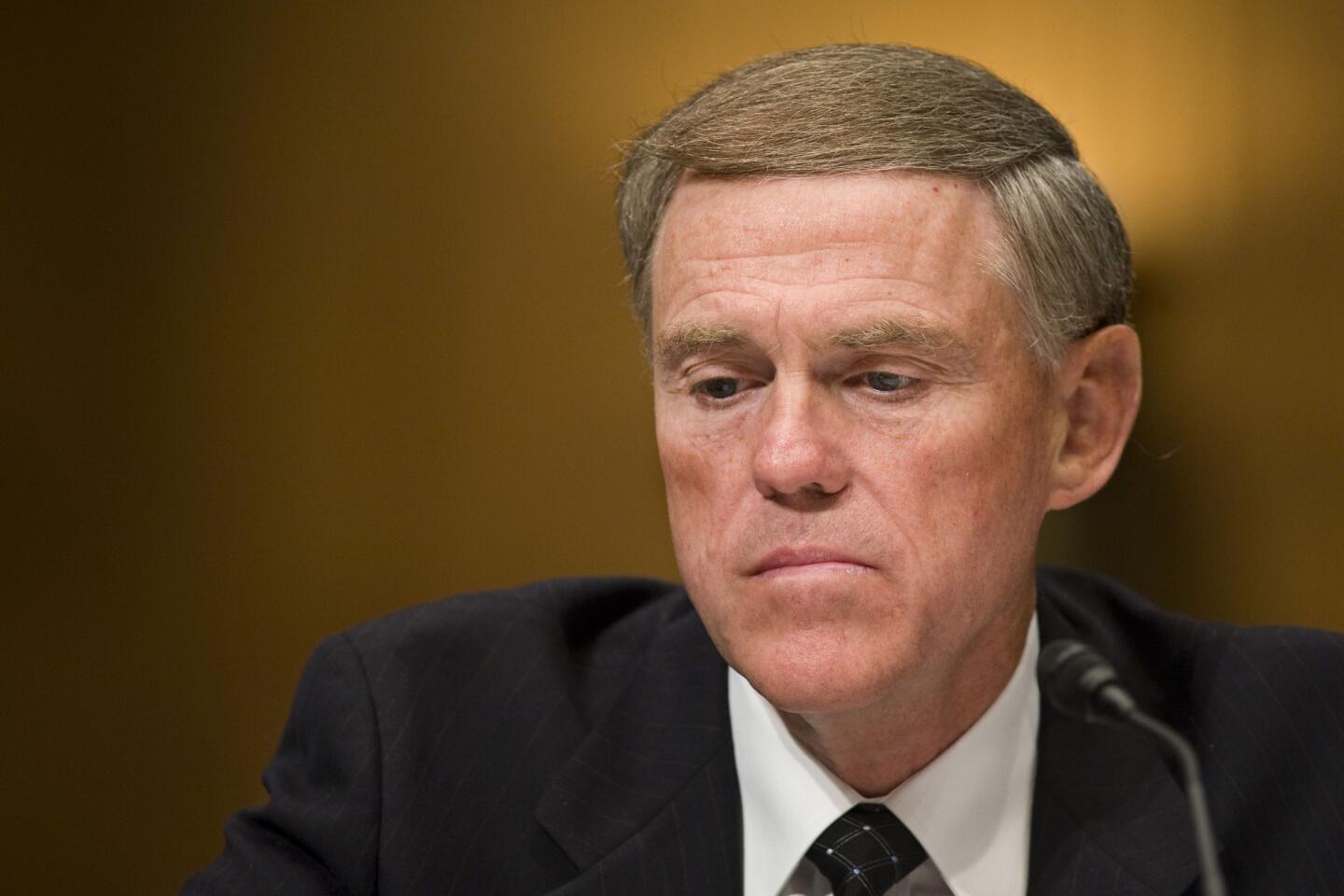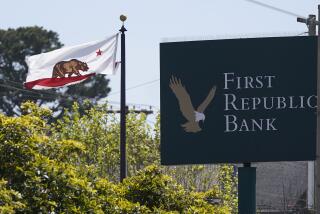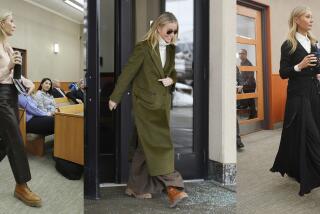Lavish perks take a drubbing on Wall Street
NEW YORK â For a night, it was like the good old days on Wall Street.
Bankers and traders in dark suits flocked to a Times Square blues lounge to sip cocktails and catch up after work. What made this gathering different was what was on the marquee outside: âLEH Rocks On.â
The LEH referred to the old stock ticker of Lehman Bros., the investment bank whose collapse five years ago this week set into motion the worst financial crisis since the Great Depression. This was a reunion of former employees, all watching the bankâs former house bands jam cover songs such as the Talking Headsâ hit âBurning Down the House.â
The night brought back memories at the tight-knit bank. And it took the former employees back to the days when Wall Street jobs meant fatter bonuses and wanton splurging.
âWe made a lot of money in those days, and we never thought it was going to end,â said one former Lehman investment banker at the event inside B.B. King Blues Club & Grill.
But it did. For many who work in finance, gone are the days of bottle service at posh Manhattan clubs.
Gone are the firm-funded lavish holiday parties with models hired as waitresses and indoor snow machines. Gone are free massages at the office, the private jets and the weekend skiing trips to Aspen.
âIt was faster and looser,â said Paul Altomonte, an information technology specialist who used to work at Lehman. âMoney doesnât flow as freely.â
Ever since Lehmanâs bankruptcy in September 2008 jettisoned some 26,000 employees, waves of subsequent layoffs have stripped thousands of Wall Street traders, bankers and analysts of their six- and seven-figure salaries and bonuses.
New York City lost some 28,300 securities industry jobs during the financial crisis after Lehmanâs demise, according to estimates by the New York state comptrollerâs office. That doesnât include the thousands more that vanished from hedge funds and private equity shops.
Only 8,500 of those jobs have come back in the last few years, according to the comptrollerâs office.
âIn past recoveries, Wall Street has been a driving force, that hasnât been the case this time around,â said Kenneth Bleiwas, deputy New York state comptroller.
Whatâs more telling is that members of the current crop of Wall Streeters just arenât making the same kind of money that they were before, even if the nationâs banks are racking up record profits. The comptrollerâs office said the average salary has fallen about $40,000 since 2007.
Moreover, bonuses have declined sharply. In 2006, the average Wall Street bonus was $191,360, according to the comptrollerâs office. Last year, it was $121,890.
âFive years ago you almost had unlimited horizon of opportunity, of what you could create or how much you could make,â said Greg Gentile, who was a Lehman credit trader and played guitar at the blues lounge. âThatâs been severely limited and capped by regulation and by just a massive decrease in the risk appetite of the institutions.â
One 40-something stock trader who has bounced around major Wall Street investment houses complained of a âmoroseâ mood in his line of work. Bonuses these days are often deferred, tethering traders to their firms longer than they wish.
A former Lehman trader at the Times Square concert summed up the zeitgeist more bluntly.
âEverybody is miserable,â said the trader, who like many still working on Wall Street declined to be quoted by name because his firm prohibits employees from speaking to reporters. âEverybodyâs leaving who can, or theyâre being squeezed out.â
The Financial Crisis Inquiry Commission blamed rapacious compensation as a contributor to the crash. The Occupy Wall Street movement and persistent howls to jail bankers for wrecking the countryâs economy didnât make life easier in Manhattanâs shiny skyscrapers, either.
The upheaval came against a backdrop of government and popular ire aimed at Wall Street. Congress and federal agencies imposed a slew of new regulations, while prosecutors have roiled the industry with civil and criminal investigations into white-collar chicanery.
A more subdued Wall Street is obvious to Eric Benn, the co-owner of a champagne bar in Manhattanâs trendy Tribeca neighborhood that is aptly named The Bubble Lounge.
For nearly two decades, good times on Wall Street meant good times at his bar. Big banks, trading firms and other companies would regularly drop as much as $30,000 on parties there, he said. Now the bar is lucky to get $10,000.
In 2008, he said the lounge raked in $1.6 million in sales. That year they sold a bottle of champagne with an eye-popping price tag â $6,000 for a six-liter Methuselah of Louis Roederer Cristal.
âPre-Lehman, there was a lot more splurging,â Benn said.
Last year, sales were off 16% compared with 2008. The priciest champagne sold so far this year: $700 dropped on a bottle of Bollinger RD 1979. Bottle service nowadays can veer toward less-expensive vodka.
âThey really stretch out that one drink and make it last as long as possible,â Benn said.
The scaling back in spending makes sense. After all, staying employed in the financial industry hasnât gotten easier in recent years.
âEverybody is chastened by what happened. Everybody knows someone who is unemployed or has been unemployed,â said Karen Bodner, 41, who has lost two finance jobs since Lehman collapsed. âPeople are absolutely more cautious personally, because we all know that the worst can happen.â
Certainly, many in the industry acknowledge their pay â while not at bubble levels â is still jaw-dropping by Main Street standards. And there is some evidence suggesting financial types are rewarding themselves for their stressful, long hours.
At Manhattan Motorcars, a luxury auto dealership, traders and bankers have long favored the flashy two-seat Porsche that âshows success, shows youâve arrived,â said Brian Miller, the dealerâs owner.
But after Lehmanâs fall, Miller saw fewer financiers in his showroom. They used to scout cars in the fourth quarter, then buy during the new yearâs bonus season.
âAfter â08 we didnât see very many Wall Street guys,â Miller said, chalking up the decline to conspicuous consumption becoming taboo during the crisis.
But now, with the economy on the mend, Miller said: âWeâve definitely started to see those guys come back.â
More to Read
Inside the business of entertainment
The Wide Shot brings you news, analysis and insights on everything from streaming wars to production â and what it all means for the future.
You may occasionally receive promotional content from the Los Angeles Times.
